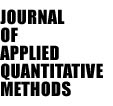 |
|
|||
The Italian Judicial Offices Productivity in Almost 130 Years of Cognition Civil Procedures
Keywords
judicial offices productivity, cognition civil procedures, procedures duration, index of disposal, variation of pending
Abstract
In Italy, one of the hinge points on which the concept of State leans - the Justice - has slipped in a deep crisis more and more since remarkable difficulties in its internal reorganization are accompanied to the natural process of review in the civil society in evolution. The more evident external aspects of such crisis are translated in the slowness of the judicial mechanism, in the high cost of its antiquated procedures and in the difference of the sentences for degrees of judgment. To comfort or to contradict this or that thesis, also, sometimes statistic data are brought in contrast from each other, because of what they define is not well specified. Wanting to give clarity, it is first of all necessary to delimit this analysis to the procedure of cognition, essential unit of the civil trial activity, for an objective knowledge of the phenomenon from the quantitative point of view, to be able to supply stable terms of reference for a better interpretation of the facts and a more serious search of the causes and the effects, reaching a suitable territorial distribution of the enquirer personnel, judging or not. The analysis of some statistic indicators (i.e., the procedures duration, the index of disposal, the percentage variation of pending) derived by the data related to supervened, exhaustions and pending allows to estimate the productivity of the judicial offices in comparison to the justice demand. In the centennial oscillation of the civil procedures of cognition (and particularly of the relative quotients for 100.000 inhabitants), both in first degree and appeals, a growth is established, especially in the last twenty-thirty years, of supervened and exhausted procedures, and still more of those leaning that among the 1991/2000 decade and the average value of the last seven years go over the doubling. The average life of the civil procedures in every degree of judgment that on the contrary has gone growing since 1881 to today, even though with occasional lowering events. The civil procedures of cognition have reached by now the average duration of 3.000 days, and this means around eight years of waiting for the definitive sentence.

